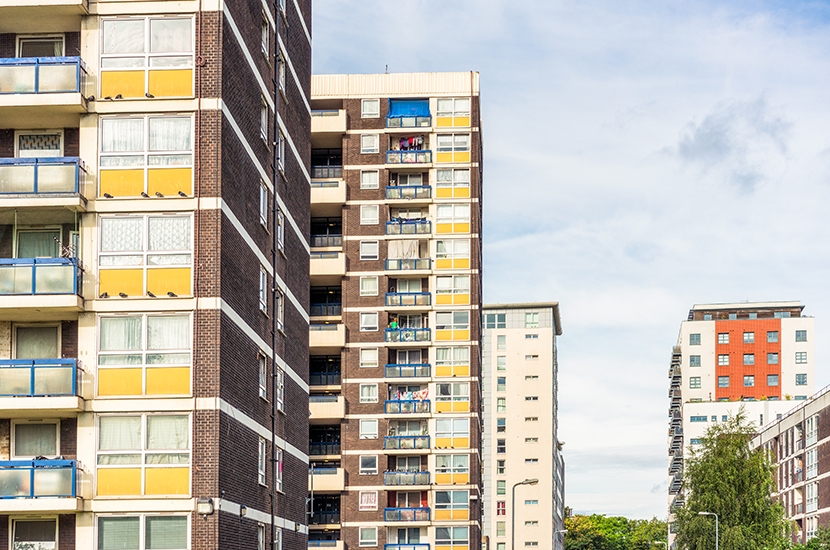Filthy germ-laden townsfolk were out and about on the footpaths near my home on Easter Sunday, dragging with them their awful, mewling children. I got the dog to harass them and occasionally shouted out: ‘These are local paths for local people. Clear off.’ One youngish father — lightly bearded, self-satisfied smirk, probably a sticker on his car window saying ‘Refugees welcome here’ — even had the nerve to ask me for directions to the nearest train station so that he might return to his squalid Remainer tenement. I directed him and his family through a field which was fecund with manure and full of restive bullocks. The child — four or five years old and already gobby and full of itself — was wearing a bright red T-shirt. Time to test that age-old myth about bulls, then.
Some of the day-trippers were wearing masks. ‘You don’t need those here,’ I felt like saying, ‘the people who live around here are disease-free.’ A popular footpath goes right past my front door and my wife heard a couple jabbering about how loud the birdsong was, as a yellowhammer in a nearby hedgerow plaintively recorded its bitter disappointment with its latest click-and-collect delivery: a little bit of bread and no cheese whatsoever.
A familiar observation from townies these past few weeks — how the birds seem to be singing louder during lockdown. They are not singing louder. They are singing just like they always do, except now Londoners can hear them because they’ve been forced to put on hold their own interminable cacophony of self-importance. Hell, if this goes on long enough Londoners might even be able to hear the rest of the country. But in truth yellowhammers are as alien to them as a shortage of dried black limes in Waitrose. I was reminded of Betjeman’s observation, as he urged those bombs to fall on Slough: ‘It’s not their fault they do not know/ the birdsong from the radio.’
Not just birds, either. A visiting woman down our lane was admiring the hedgerow flowers, which she identified to her equally gormless partner as bluebells. ‘They’re wild violets, you addled urban skank,’ I almost said. ‘You could use an extract from the plant to clear up your skin problem.’ And then there were the inevitable cyclists, oblivious to everything and everyone, zipping along in their stupid hats. Easter Sunday, rather than blustery Easter Monday, was the day the metropolitans resurrected themselves from their fetid lockdown pits and visited themselves on the rest of us law-abiding folk. I spent the afternoon spraying bleach around our driveway and coughing extravagantly when the buggers came too close.
There is an irony at work with this virus. It was brought to the UK not by the bat-munching Chinese, but by the most affluent sectors of British society — those who can afford a nice midwinter skiing trip to north-east Italy, for example — but it is now killing the poorest of us. It is not a great surprise that the first affected were the metropolitan elite, with government ministers, the prime minister himself and then a retinue of advisers immediately laid low, not to mention the royal family and a host of celebs and journos.
The trouble is, they did not keep the disease to themselves and it was quickly passed on to those less well-remunerated people who are attendant upon the privileged few. Transport workers, medical practitioners, shopkeepers, supermarket counter staff — and from then on ever lower in society, spreading with enormous rapidity among the crowded, impoverished bottom echelons. It may be true that we are ‘all in this together’, as the oft repeated cliché has it. But it is also true that if you are badly off and live in crowded conditions, or are forced to attend a place of work (often for meagre reward), you are now more likely to both catch the virus and — more importantly, for a host of socioeconomic reasons — die of it. I can self-isolate fairly comfortably, given that only four or five other people live within a half-mile radius of my home. But it would be comfortable enough, too, if I had a pleasantly spacious villa in Maida Vale or Fulham. How easy is it, though, if you are on the 15th floor of a tower block in Walthamstow?
***
Get three months’ free access to The Spectator USA website —
then just $3.99/month. Subscribe here
***
Those of us with a bit of disposable cash can also throw money at the problem, paying over the odds for food deliveries which obviate the need to queue in the petri dish of a supermarket. As the left says, the virus and the lockdown expose social inequality, first through a defining lethality and secondly through the extent to which people can cope easily with ‘self-isolation’ — surely a misnomer for the way in which many live in our towns and cities. Some commentators have tried to find a racial angle in this, largely because they are deranged and try to find a racial angle in everything. But it is purely about poverty and the stuff which necessarily attends to poverty: lack of space, lack of options, lack of power.
And of course there is the question of age. In his essay ‘How the poor die’, George Orwell described the deaths of largely impecunious people in a French public hospital — mainly of respiratory illnesses, such as the one which finally killed him, tuberculosis. If we were to rewrite that essay today, the focus would be an impoverished pensioner in a cheap-as-chips care home, allowed to die out of sight of the rest of us because we don’t want him blocking a bed and a ventilator in a hospital. They are dying in their thousands, beneath a sign reading: ‘Do not resuscitate’. Or perhaps it would be a London bus driver, bombarded with the virus every day, but denied personal protection equipment because somebody, somewhere does not consider such stuff necessary.
This article was originally published in
The Spectator’s UK magazine. Subscribe to the US edition here.


















